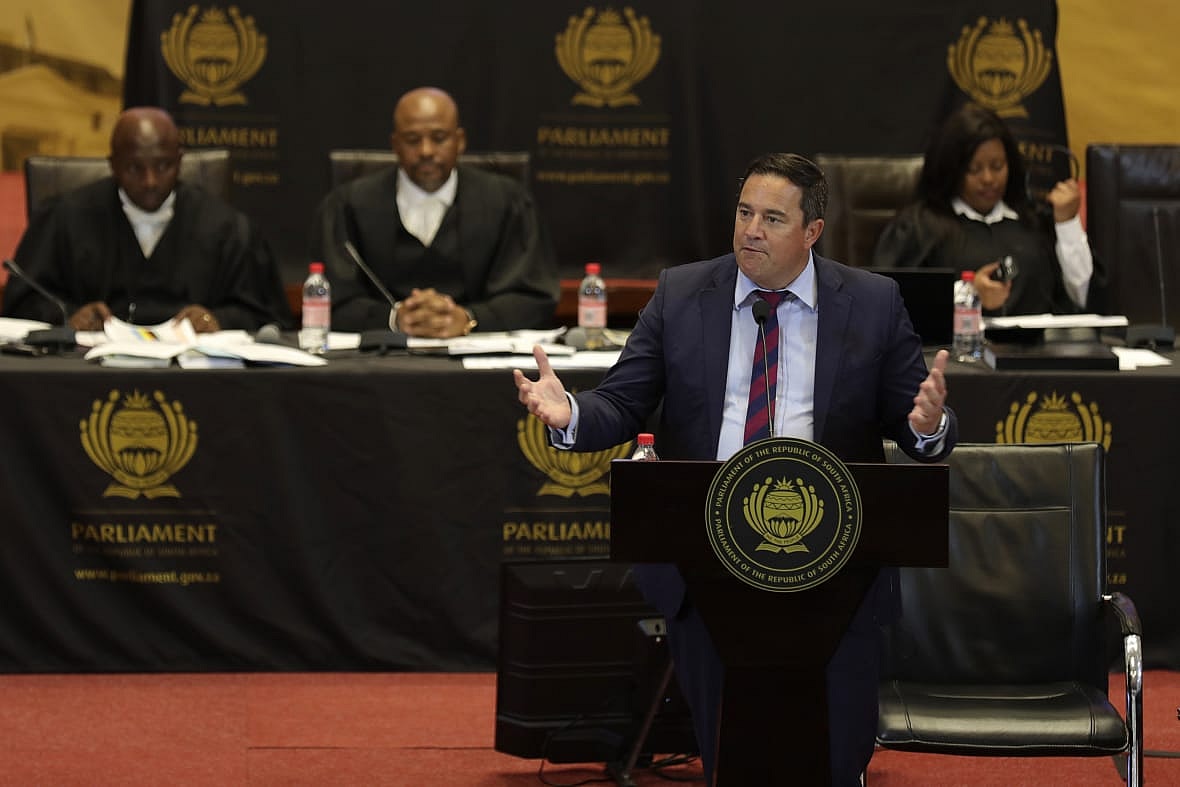CAPE TOWN, South Africa (AP) — Six opposition parties announced Tuesday they will discuss forming an alliance for South Africa’s national election next year in an attempt to end the 30-year hold on power of the African National Congress.
Such an alliance has been proposed previously, under the name “Moonshot Pact” — moonshot can mean a long shot but also something that is a giant leap. But the idea gained more momentum with the announcement that the six parties will hold meetings Aug. 16 and 17 to consider creating a united opposition.

The parties “came to the inescapable conclusion that forming a united opposition pact ahead of the 2024 election offers us the very best chance to unseat the ANC … and form an alternative that will provide a stable new government to rescue South Africa,” John Steenhuisen, leader of the Democratic Alliance, the second biggest party in Parliament after the ANC, said in a televised address.
Under the proposal, the parties would not unite as one party but rather would form a governing coalition if they succeeded in gaining a collective majority in the election — something that experts consider unlikely despite what are perceived as the failures of the ANC.
The ANC has won every national election in South Africa since former leader Nelson Mandela was elected president in the first all-race elections that ended the apartheid system of white minority rule in 1994.
Since then, the ANC has been accused of failing to deliver basic services for many South Africans and has regularly been involved in corruption scandals, including nearly a decade of alleged graft during President Jacob Zuma’s 2009-2018 administration. The ANC is also widely blamed for a national electricity crisis that has led to Africa’s most developed economy experiencing daily rolling blackouts.
The ANC’s popularity is waning, with its vote dropping to less than 50% in local elections two years ago. But even Steenhuisen noted in his speech that the six opposition parties together won only around 35% of the vote in the 2021 local elections in 2021.
The alliance talks do not include the far-left Economic Freedom Fighters party, which is the third biggest bloc in Parliament after the ANC and the Democratic Alliance.
In the 2019 national election, the ANC won 230 seats in the 400-seat Parliament, the Democratic Alliance got 84 and the Economic Freedom Fighters party got 44. Seats are allocated based on the parties’ percentages in the total vote.
TheGrio is FREE on your TV via Apple TV, Amazon Fire, Roku, and Android TV. Please download theGrio mobile apps today!

